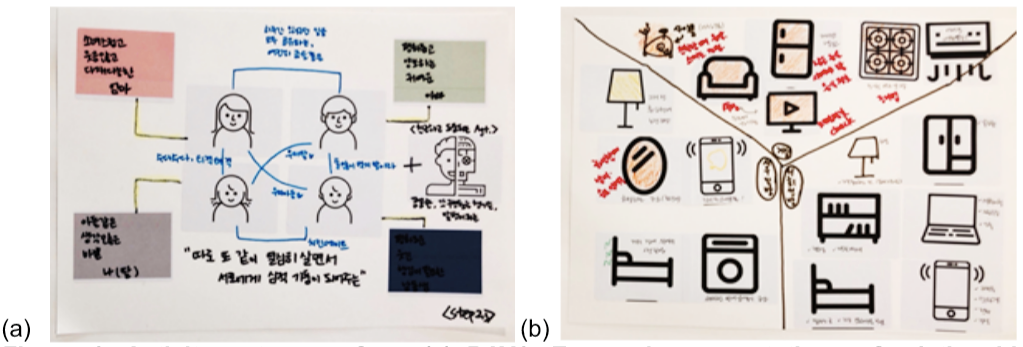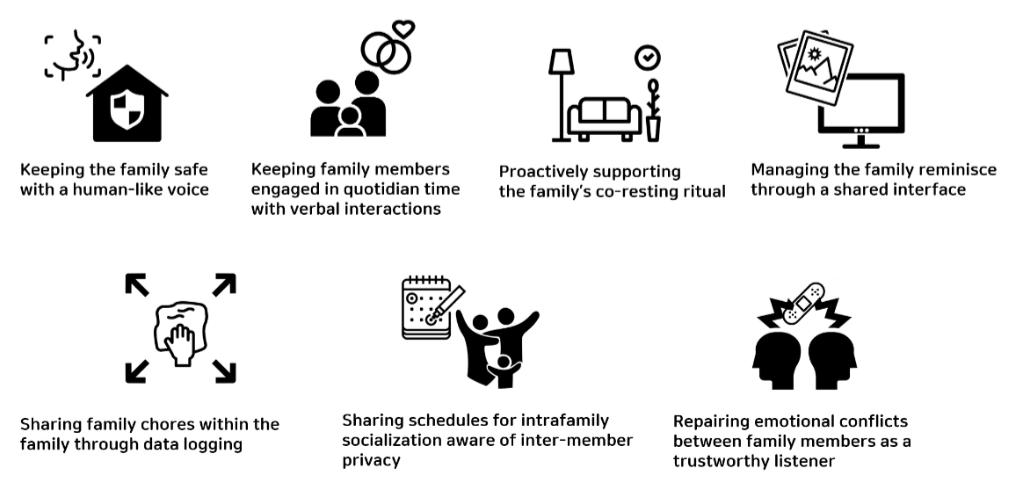As a part of the AI Flagship research project supported by IITP, Professor Youn-kyung Lim’s team has studied the AI speaker’s family-oriented roles when a family adopts it as a family-shared technology and builds co-ownership of it. The leading researcher of this study was the Ph.D. student Sunjeong Park in the Department of Industrial Design under Prof. Lim’s guidance, and this study was one of the main studies for her Ph.D. thesis.
They conducted 1-week-long participatory user studies and post interviews with 8 families, each living in a family unit. From this study, they discovered that family members’ sense of co-ownership of an AI speaker is an important basis for developing family-oriented role expectations for the AI speaker. They also discovered the seven domains of the family-oriented role expectations which interestingly converged into the need for family cohesion. The families wanted to focus on and intensify family relationships through the use of the AI speaker. The seven domains of an AI speaker for a family were: 1) keeping the family safe with a human-like voice, 2) keeping family members engaged in quotidian time with verbal interactions, 3) proactively supporting the family’s co-resting ritual, 4) managing the family reminisce through a shared interface, 5) sharing family chores within the family through data logging, 6) sharing schedules for intrafamily socialization aware of inter-member privacy, and 7) repairing emotional conflicts between family members as a trustworthy listener.
These potential domains are not yet enabled in existing AI speakers, even while some of them are technically feasible. The researchers emphasize the importance of reconsidering an AI speaker as a shared technology among family members who can build co-ownership of it, and of supporting family cohesion through this, which will open up new opportunities of AI speaker’s family-centered features.
The outcomes from this study were published as a full paper at ACM CHI 2020, the first-ranked conference in the area of HCI in Google Scholar.


Sunjeong Park, Prof. Youn-kyung Lim Dept. of Industrial Design, KAIST
Homepage: http://cixd.kaist.ac.kr
E-mail: younlim@kaist.ac.kr






